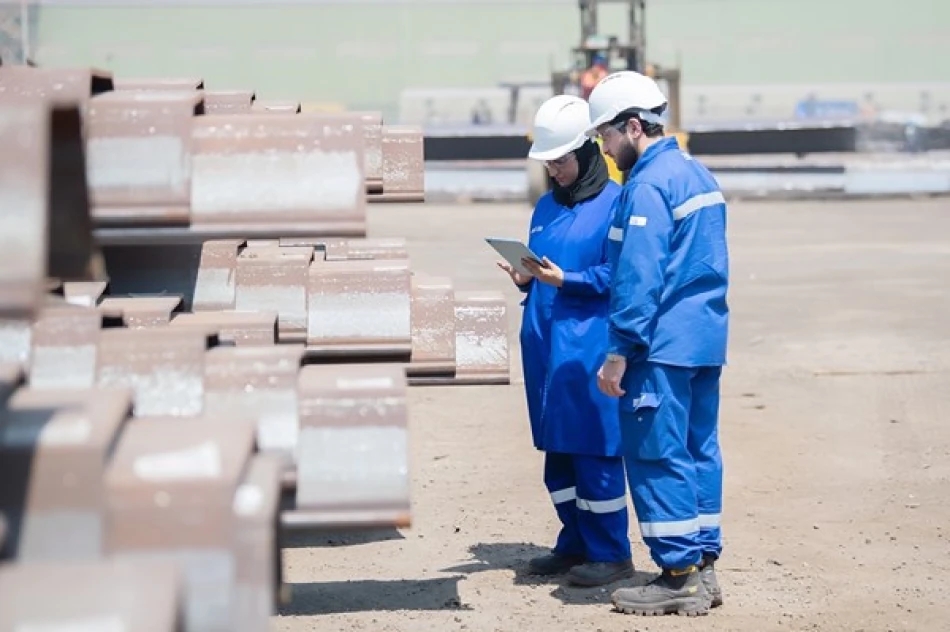
Emsteel Supplies High-Quality Foundation Plates for New Floating Bridge at the Suez Canal
UAE's Emsteel Powers Suez Canal's Next Engineering Marvel with Advanced Bridge Technology
Abu Dhabi-based Emsteel Group has secured a strategic contract to supply 5,000 tons of high-quality U-shaped sheet piles for Egypt's ambitious new floating movable bridge project across the Suez Canal. This engineering feat represents a critical milestone in modernizing one of the world's most vital maritime chokepoints while maintaining uninterrupted global shipping traffic worth over $1 trillion annually.
Engineering Innovation Meets Strategic Necessity
The floating movable bridge addresses a longstanding challenge: connecting the canal's eastern and western banks without disrupting the passage of massive container ships and tankers that carry 12% of global trade. Unlike fixed bridges that require enormous height clearances, this movable solution can accommodate the canal's diverse vessel traffic while providing essential land connectivity for Egypt's Sinai Peninsula development.
This project builds on Emsteel's previous collaboration with the Suez Canal Authority, where the company supplied Z-shaped sheet piles for earlier infrastructure developments. The partnership reflects Egypt's broader $8 billion expansion program that has doubled the canal's capacity since 2015.
Regional Manufacturing Powerhouse Gains Momentum
Emsteel's selection underscores the UAE's growing influence as a regional industrial hub. As the Middle East and North Africa's only manufacturer of hot-rolled sheet piles, the company leverages proximity to major infrastructure projects while offering cost advantages over European or Asian suppliers.
"This pioneering project embodies our commitment to delivering solutions that elevate technical and engineering standards," said Saeed Ghuran Al Remeithi, Emsteel's CEO. The statement reflects broader UAE ambitions to position itself as an essential partner in regional megaprojects.
Technical Excellence in Harsh Environments
The U-shaped sheet piles will provide crucial structural support for the bridge's foundation systems in the canal's challenging marine environment. These components must withstand constant water exposure, soil pressure, and the vibrations from passing supertankers. Emsteel's hot-rolling process creates superior steel density and corrosion resistance compared to cold-formed alternatives.
Broader Implications for Trade Infrastructure
This bridge project signals Egypt's recognition that the Suez Canal's future depends on more than just waterway capacity. Land-based connectivity enables economic development in surrounding regions, potentially creating new logistics hubs and industrial zones that complement the canal's maritime advantages.
The timing is strategic. As global supply chains diversify away from over-reliance on Asian manufacturing, the Middle East positions itself as an alternative production and transshipment center. Enhanced Suez Canal infrastructure supports this transition by improving regional connectivity.
Market Positioning and Future Prospects
For Emsteel, this contract validates its strategy of focusing on specialized steel products for infrastructure applications. The company's regional manufacturing advantage becomes more valuable as transportation costs rise and supply chain resilience gains priority over pure cost optimization.
The success of this partnership likely opens doors to similar projects across the region, where governments are investing heavily in transport infrastructure to support economic diversification efforts. From Saudi Arabia's NEOM project to Qatar's World Cup legacy developments, demand for specialized construction materials continues expanding.
This Suez Canal bridge represents more than an engineering solution—it exemplifies how regional partnerships can deliver world-class infrastructure while building industrial capabilities that serve broader economic transformation goals.
Most Viewed News

 Layla Al Mansoori
Layla Al Mansoori






